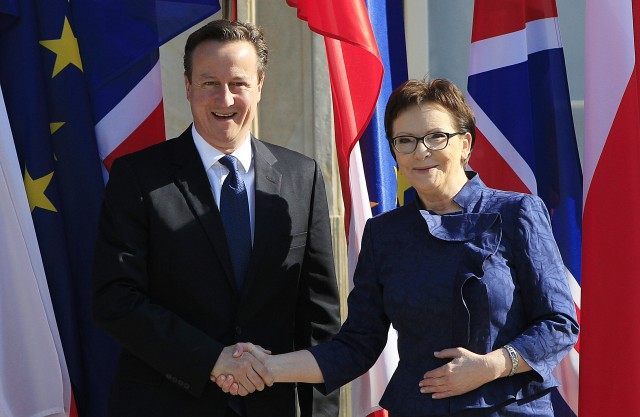David Cameron’s whistle-stop charm offensive around the EU stops in Germany today as he meets with German Chancellor Angela Merkel, the BBC reports.
The prime minister needs to convince the world’s most powerful woman to agree with his reform agenda if he’s to stand any chance of achieving meaningful changes for Britain.
But he faces an uphill battle, as Mrs Merkel’s deputy Sigmar Gabriel has already indicated that there will need to be a ‘two speed Europe’ to accommodate the wishes of eurozone countries wanting further integration and those wanting powers repatriated to nation states.
In an article in Das Bild, Mr Gabriel wrote:
“We need in Europe more courage for different speeds in co-operation.”
“Some – especially France and Germany – need to lead the way, for example in energy policy or in the co-operation of economic and finance policy. Others can follow when they are ready.”
“Not everyone needs to do everything. But we need deeper co-operation under the roof of the European Union.”
His words are in stark contrast to the message of Mr Cameron, who is urging his fellow EU leaders to be “flexible and imaginative” as he tries to gain support for his proposals ahead of key EU summits. These will need to include changes to free movement of people and access to benefits if it is to stand any chance of being hailed as a victory.
But that looks like a near vertical battle, with one of Germany’s most senior businessmen Volker Treier, saying the German business world was “astonished” the UK was holding a referendum at all.
The deputy chief executive of Germany’s chamber of commerce and industry told the BBC ‘Europe’ should refuse to negotiated with the British Prime Minister, saying “Our recommendation is not to deal under such circumstances.”
The Chancellor has previously said she wanted the UK to remain part of the EU, but stressed that the free movement of people within the bloc was not up for renegotiation.
Yesterday’s visit to Poland included discussions about tougher rules to prevent migrants claiming benefits. But the post meeting briefing by each Prime Minister’s spokesmen pointed to a clear difference of opinion both over the success of the discussions and the future of the EU.
After the breakfast meeting with Ewa Kopacz, a No. 10 spokesman said the two leaders had agreed on the need for more powers for national parliaments and for countries outside the eurozone not to be at a diplomatic disadvantage in the event of closer integration within the single currency.
“On immigration and welfare, Prime Minister Kopacz welcomed the prime minister’s commitment to respect the principle of free movement,” they said.
“They agreed that there were issues concerning the interaction between free movement and national welfare systems that should be discussed further.”
However, Poland’s Minister for European Affairs said any treaty change, which is what Mr Cameron needs to secure for anything other than cosmetic changes, would “not be easy”.
Mr Trzaskowski said, “As far as treaty changes are concerned or the introduction of discriminatory measures, that would be a red line for Poland.”
“If every country comes with a shopping list to change European Union policies, that will be the end of the European construction, it will simply implode.”

COMMENTS
Please let us know if you're having issues with commenting.